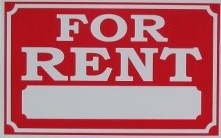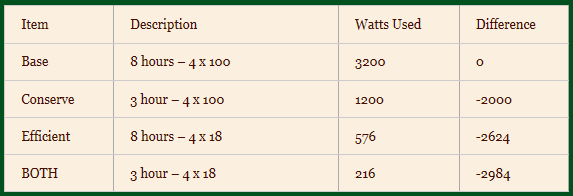 While there are many benefits to renting over owning, one of the cons is that you have no choice over how the place is cooled, heated or which appliances are used. In many cases the owner or management company will choose the less expensive equipment that fits the bill with no regard to what the operating costs are. While you may have no control over the building or appliances in it, there are numerous ways to trim your utility costs.
While there are many benefits to renting over owning, one of the cons is that you have no choice over how the place is cooled, heated or which appliances are used. In many cases the owner or management company will choose the less expensive equipment that fits the bill with no regard to what the operating costs are. While you may have no control over the building or appliances in it, there are numerous ways to trim your utility costs.
Choose Wisely:
When you are out looking for a new apartment, townhome, or house to rent this is the time to pay attention to more than just the location & price. While noisy neighbors can be an issue, reducing the amount of exterior walls or ceilings will generally result in lower heating & cooling costs. This is also a good time to get concessions. For example, if you find a great place, yet it appears that the refrigerator was made back in the Carter era, see if they will agree on purchasing & installing a new one before you sign on the dotted line. (Older refrigerators & appliance are notoriously inefficient which even todays “base” units outperform by a factor of 3 or more in some cases)
Maintenance:
While almost everyone agrees that air filters should be changed or cleaned out basically every month, most apartment complexes do not enter the units to do this. Instead most have a stock in the office for residents to change out, so make sure you grab one when you drop off the check. Vacuuming refrigerator coils, and other similar items are also deemed to be your responsibility & by taking care of those items you will keep the equipment running optimally. For more please see our Monthly Maintenance checklists – while some items might not apply there are some that do apply and other great tips
Heating:
Most of America is in a heating dominant climate which also coincides with it having the biggest slice of the pie when it comes to utility usage.
- Setting up the programmable thermostat to your schedule or turning the heat down before you leave for the day can help reduce usage.
- While you can’t put up storm windows or place aluminum foil in the windows, placing up a film style storm inside is not only cheap but will help keep the heat in. The nice thing about the film is that it isn’t visible from the outside & it won’t do any damage inside.
- Turn the thermostat down & dressing a little warmer is also a good way to save
- Opening up blinds or drapes on the sunny side during the day can help introduce free heat during the day.
- Using an electric space heater to save is dependent on a number of factors but it won’t save you anything if it is left on while no one is in the room – no you should never bring a fuel burning one into a rental, nor try heating with a charcoal grill, oven, or use candles
Cooling:
- Consider cooking with your microwave or an outdoor grill (if allowed), or enjoying a nice salad. This will help cut down on the amount of heat introduced into the house from the oven that needs to be cooled.
- Use your blinds wisely, while they can help block the heat, you will still want to allow natural light in, make sure you close blinds when the sun shines directly in the windows
- Bump the thermostat up during the summer months (78 or higher), and use either ceiling or portable fans to help circulate the air. Just like the space heater above, it doesn’t do you any good if they are left running while no one is in the room.
Conservation:
Conservation has never meant to suffer, but turning lights off when no one is in the room or using surge strips to power off chargers & other items can save you big time. While one might not have to pay for the water, taking shorter showers can save you on the money needed to heat the water. Along those lines, turning the water heater down to 120° will reduce your costs while preventing scalding. For more see our 25 Conservation Tips & Tricks.
Inexpensive Replacements:
Most rental owners & management companies now install low-flow fixtures & even CFL bulbs in the units. If yours doesn’t consider changing out the most common used bulbs with CFL’s (or LED’s) – shoot you can even save the incandescent bulbs & re-install them allowing you to take the CFL’s (or LED’s) with you to your next place.
This table was from our Energy Efficiency Vs. Conservation article, but it shows the power of combining the two…
Check Around:
Many states, cities, counties, and even some utilities offer programs for renters to help improve the efficiency of their existing place. While you might not have one that benefits you directly in your area, there may be one that is designed for rental property owners. Helpful hint (especially as I used to be one) don’t just assume that they know about the program, as they might not.


Great advice, Sean. Another one that I’d add to the list is to look for disconnected ducts, if they have access to the duct system. These are way more common than they should be and reconnecting one can save a lot on heating and cooling.
Thank you & very good point Allison, especially for those renting a house. Of course if one spots one of your famous ductopus’s the best advice would be to run. I hope you guys have been having a great week
Great advice, Sean. Another one that I’d add to the list is to look for disconnected ducts, if they have access to the duct system. These are way more common than they should be and reconnecting one can save a lot on heating and cooling.
Thank you & very good point Allison, especially for those renting a house. Of course if one spots one of your famous ductopus’s the best advice would be to run. I hope you guys have been having a great week